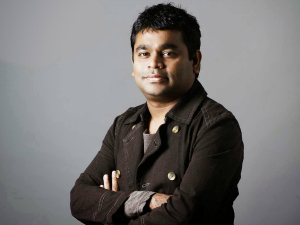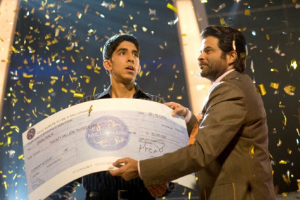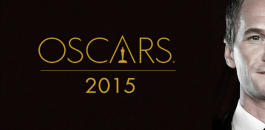"Tonight, we honour Hollywood’s best and whitest. Sorry… brightest."
If the 2015 Oscars have taught us anything, it’s that integrating with the West hasn’t done much in the way of encouraging the celebration of diversity in the arts.
For the 87th Academy Awards, renowned Indian music director, AR Rahman was longlisted for four ‘Best Original Songs’.
They were from popular Hollywood films, Million Dollar Arm and The Hundred-Foot Journey. Sadly, he failed to make it to the final nominees list.
Why you ask? Because in Hollywood, diversity is apparently still a meaningless concept. It is a shame that even in 2015, the Oscars continues to struggle with ethnic representation.

Even Oscar host, Neil Patrick Harris couldn’t help take a dig when he said: “Welcome to the 87th Oscars. Tonight, we honour Hollywood’s best and whitest. Sorry… brightest.”
The twenty nominees for Best Actor/Actress and Best Supporting Actor/Actress, were by no means a true representation of the incredible ethnic talent that exists in the West and around the world. (See our article on why Riz Ahmed is the biggest snub of the Awards season here.)
The last film to make any kind of South Asian impact on the Oscars was Slumdog Millionaire in 2008. It won eight Academy Awards including ‘Best Picture’ for Christian Colson, ‘Best Director’ for Danny Boyle, ‘Best Adapted Screenplay’ for Simon Beaufoy, and ‘Best Cinematography’ for Anthony Dod Mantle.

Reaction towards the film in India was largely mixed. Although Slumdog was lauded in the West for its innovativeness, in India it was actually not unique at all.
The subject had been touched upon by many Indian filmmakers and writers, none of whom received the same kind of global recognition or Western seal of approval that Danny Boyle did.
So why did Slumdog achieve so much? Is it because only White or Western representations of other ethnicities are worth celebrating? Those which typecast races entirely, like Slumdog, and to some extent 12 Years a Slave?
Or is it simply that they are moulded by a Western director and crew? Perhaps the Academy (’94 percent white and 77 percent male’) is essentially a White body that is concerned solely with Whiteness.
Even American Sniper, nominated for 2015’s ‘Best Film’, is a film that attempts to offer a ‘white Hollywood’ representation of current affairs and the war on terror.
But what about the other perspective? Why do we continually suffer from institutionalised racism in an industry that applauds freedom and creativity?
Clearly, there needs to be a balance of talent representation across all sectors, and the only way this can happen is if minorities are offered appropriate recognition and equal standing.
But then how many minorities have been free to act away from the tokenistic diversity their skin tone offers?
The world almost went into meltdown over the possibility that the black Idris Elba could be the next James Bond. So can a black or Asian actor ever be anything other than a black or Asian character?
If not, then why should the Oscars be open to supposed ‘non-White outsiders’ at all?
Despite the obvious barriers, ethnic minorities in America have not shied away from making their opinions known, using the very same platform that oppresses them.

Legend said: “We know that right now the struggle for freedom and justice is real. We live in the most incarcerated country [USA] in the world.”
And it’s not just the ethnicities waging war against White patriarchy, White women too are trying to get their voices heard. ‘Best Supporting Actress’ winner Patricia Arquette swapped her niceties for a call for gender equality saying:
“It’s time for all the women in America and all the men that love women, and all the gay people, and all the people of colour that we’ve all fought for to fight for us now.”
But Arquette faced a deserved backlash – as though such minority groups didn’t have enough on their plate than taking up the causes of White liberal women as well!
It is clear that the road to true equal representation, both racial and gender-based, is a long and winding one.
Will there be a day when we see actors, filmmakers, musicians and technicians celebrated not because of the ethnic tokenism they offer but purely based on their talents. Or will we never be able to separate between the two?

Special guests Kevin Spacey and John Travolta spoke about bridging the gap between the two film industries.
Recent years have brought Bollywood and Hollywood together but it is sad to see that they are not celebrated on the worldwide stage together.
Will it take yet another generation for this kind of segregation to finally disappear?
Such inequality is the kind of thing that deters young British Asians from going into the arts and becoming actors.
Parents have more than enough license to discourage them away because they won’t ‘amount to anything’; pushing them instead towards professional careers that provide better social respectability. And sadly they might not be wrong to do so.
Film academies like the Oscars need to be aware of their damaging effect on younger generations of Asians and other ethnic minorities. The lack of recognition for Asian actors in Hollywood is already limiting the role models needed to inspire the youth.
Is this the archive of whitewashed cinema that we are willing to leave for our future generations? Will Western cinema remain stagnated in its ‘Whiteness’ for years to come? And will #OscarsSoWhite continue?






























































